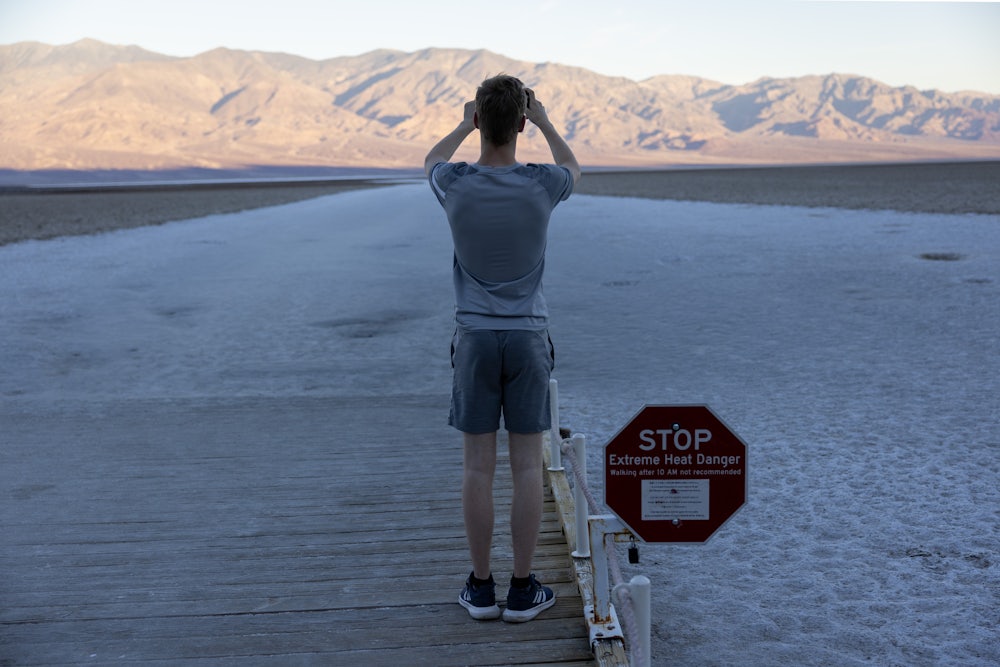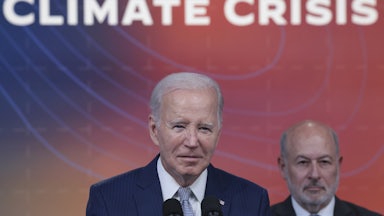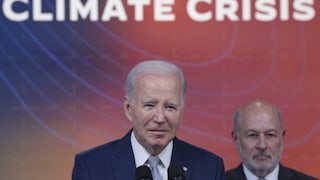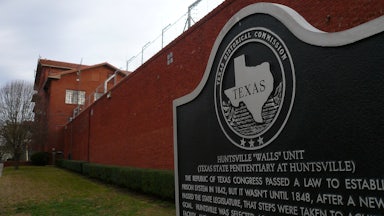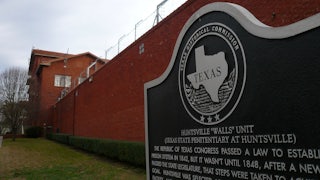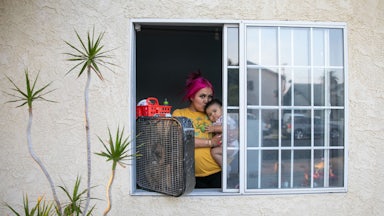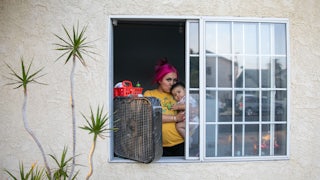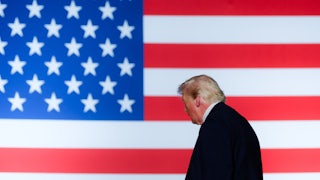Jeff Goodell has been covering climate change and energy for more than two decades. A contributing editor to Rolling Stone, he’s written four books on the topic and traveled to Alaska to profile former President Barack Obama and his climate agenda. But Goodell told me he’d never really thought seriously about extreme heat until he visited Phoenix during a day when the temperature reached 115 degrees.
“I went outside and ran into this wall of heat,” he said. “My heart was beating and pounding, I was feeling light-headed. I was like, fuck. I realized I didn’t know anything about the risks of heat and what it meant for my body. I was talking to a friend of mine a couple days later, and he asked me, ‘Well, what is heat?’ And I couldn’t even say that. I had no freaking idea. I thought, ‘There’s a good idea for a book.’”
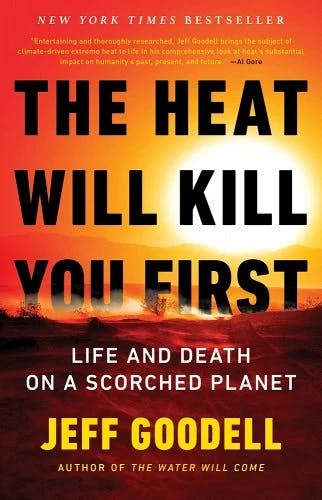
Goodell’s latest book, The Heat Will Kill You First: Life and Death on a Scorched Planet, was released in July, as the world was in the grips of what could be its hottest month on record. The book is currently in its third week on The New York Times bestseller list, and its tour has turned Goodell into the mainstream media’s go-to expert on extreme heat.
I spoke with Goodell last week about why heat is such a hard topic to tackle and what he thinks about the media’s coverage of climate change. The interview has been edited and condensed for clarity.
What is it about the idea of heat that we seem so unable to kind of get our arms around, even as climate reporters?
I think it starts with this simple notion that heat is invisible. I’m looking out the window here, and from my office in Austin, I can’t tell if it’s 70 degrees or 130 degrees out there—it looks the same. There’s a fundamental difficulty in our brain of processing heat because it’s not visual. All these other climate impacts we write about, they’re very visual, and they imprint on us in a different kind of way.
Then part of it has to do with just not understanding the risks of heat. And it also partly has to do with people liking warm weather, I think. People just like to be in warm places in general. It’s nice being at the beach. If I have to go on a reporting trip, yeah, I’d like to go somewhere warm. I think there’s a kind of cultural bias towards warmth—a kind of virtuous thing.
That makes sense. It’s summer, and it’s fun, and of course, it’s hot, so you’re gonna go to the pool, you know?
Right. And it’s in our language. The person you meet at the bar is hot. At Rolling Stone, we have a “hot list” every summer, of musicians and TV shows and stuff. The Miami basketball team is the Miami Heat. Our language suggests that hot is good and virile, and a sign of life and strength.
This book seems to have come out at exactly the right time—what things have surprised you about what people are asking you during this press tour?
People like you and me live in a little bit of a media bubble—you know? I read your pieces, you read my pieces. We have the sense that there’s a lot of [climate] coverage and nobody’s paying attention.
On this book tour, way more than any other book tour because it’s had so much media attention, I’ve really encountered this vast media landscape—it’s mostly kind of regional market stuff—of writers and journalists who know nothing about this subject; who understand that they should be covering it and that it’s important in some way. It’s because—I think for the same reason my book is successful right now—the heat is touching people in a very literal, tangible way. I had one reporter tell me that her daughter came up to her the other day and said, “Mommy, why is the sky broken?”
I think [outlets say], “What the fuck is going on? Bob, go out and cover this.” So Bob goes out to cover this and he has no idea what’s going on. He has 10,000 other stories happening and he’s heard some rumors about a thing called carbon dioxide and a thing called climate change, and it’s supposed to be important. And it has something to do with energy and something else. And so he goes out to do a piece about it.
I’m glad you mentioned the bubble. There seems to be a disconnect between the people who are covering and regularly following climate change and how it filters into the culture. It’s been surprising to me to learn how few people, even those who regularly read the news, know about climate stuff that I think you and I would take as basics.
Right? It’s striking. Part of it has to do with this media landscape that’s too busy, too underpaid, too distracted, too fearful of politics to cover it. My perception might be a little skewed by the fact that I live in Texas, where there’s a lot of fossil fuel inertia. But I’m talking to reporters all over the country.
It’s also frustrating to be constantly hearing the message that no one is covering climate change on one hand and then realizing that the way that this beat has evolved seems to have almost precluded people from incorporating it into their normal coverage.
Yeah. I think some journalists are intimidated by the science. There’s so much information, and they don’t want to say something wrong. They also see it as data rather than a story. I’ve seen a lot of examples of people trying desperately to make this relevant to people’s lives in a kind of silly way.
Last week, I had a journalist ask me, “What I would really like to know is, will we be able to windsurf in the Arctic?” I said, “What kind of a question is that?”
How is that even relevant?
I know. It isn’t like his radio station was in the Arctic.
Was he being serious? Or was he being facetious?
He goes, “Well, you know, sports are really a big issue. I love windsurfing, and I think there are a lot of people who are drawn to Death Valley for the extreme temperatures. I think there are people who would want to be the first to windsurf through the Arctic.” Like, that’s your lead question for me?
With the U.S. media landscape being so totally overwhelmed and under-resourced, do you see an easy way for all journalists to get better educated on how to talk about climate? Is this heat kind of doing it for us?
I think the heat is doing it, in the sense of engaging more people. That’s why I titled my book The Heat Will Kill You First. Some people were saying, you’re an idiot, no one’s gonna read a book like that. That’s alarmist. That’s scary. I’m not an alarmist. I’m a person who wants to communicate the scope and scale of what we face. I think a lot of coverage about climate is about futures and alternate futures. We all struggle to make it feel more real. But I really wanted the title to be about you and me and our neighbors and what’s happening right this minute.
The heat wave is doing that for people in a visceral way. My book aside, it’s kind of freaking people out a little bit. It’s very different than talking about the Doomsday Glacier or, you know, Greenland ice melting or even crop failures and things like that. It’s like, what the fuck, I can’t even go outside and check my mail. It’s too hot.
One of the things that I’ve been really struck by—and even the good climate reporters do this—is this tendency toward binary. I can’t tell you how many interviews, we’ll have a smart conversation, and then they’ll end with, “OK, so one last question: Are we doomed or not?” Or, “Is there anything we can do?” Some of it is obviously media shorthand, but it’s also this tendency toward casting this story in this sort of binary way.
I don’t even know if it’s media-specific. I get asked that at parties. I’m like, why are you asking me that?
I know, I have the same reaction. I don’t even remember being asked that often, you know, two or three years ago? I think it’s a kind of recent phenomenon. But it’s like, can we talk about this in some other way? Not in a yes-or-no, end of the world or a sunny day at the beach way of thinking about it? It’s really a damaging framework for any kind of understanding of what’s happening right now and, I think, the root of a lot of the sort of misinformed myths around this subject.
